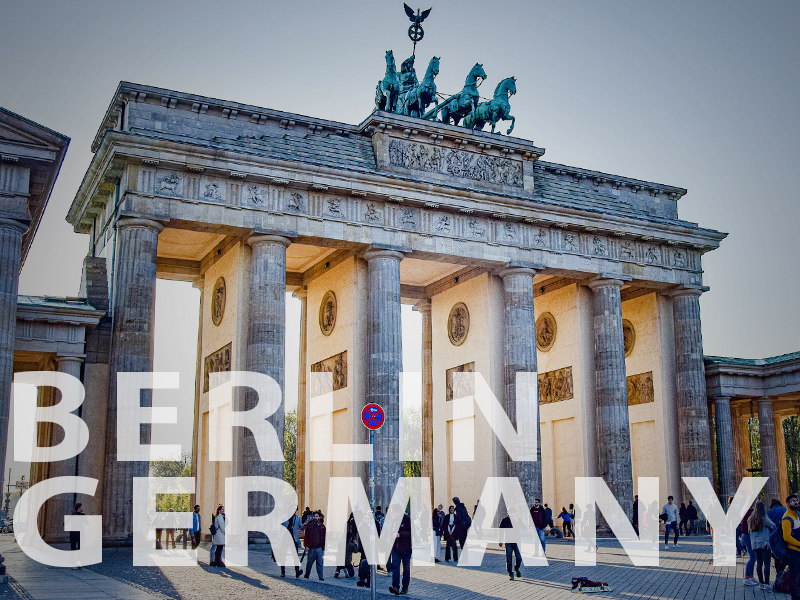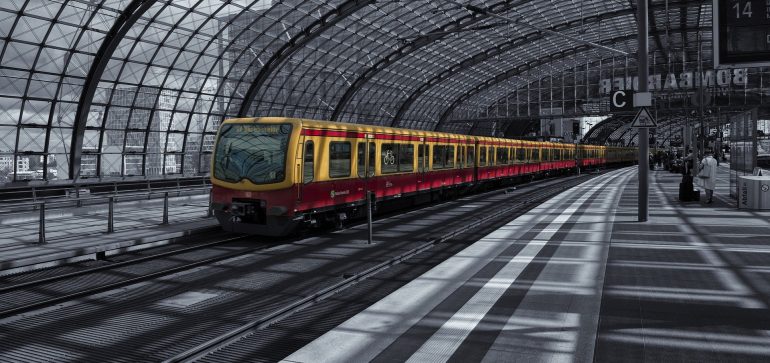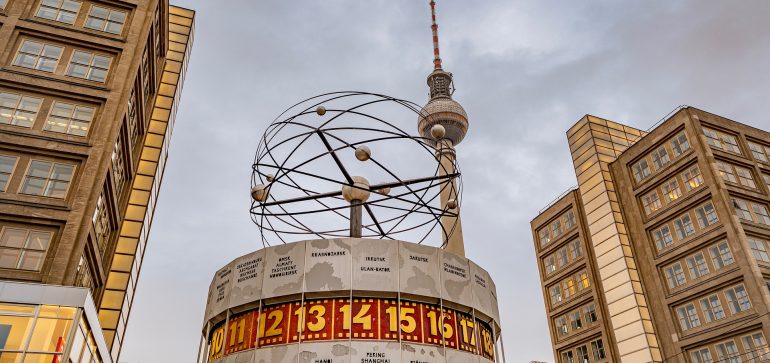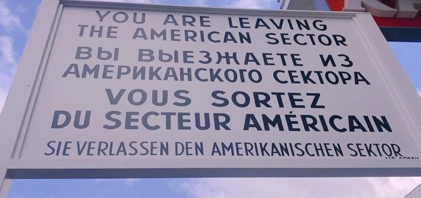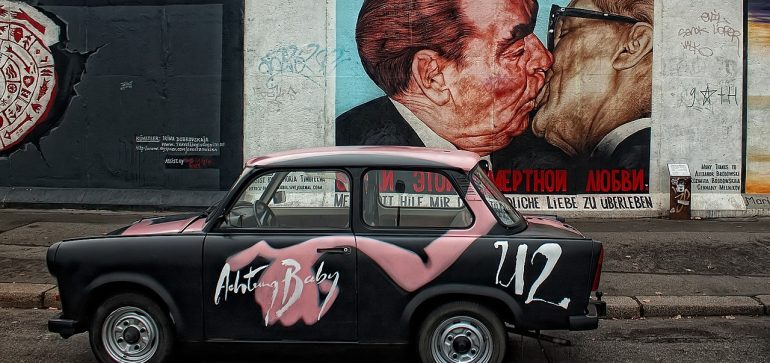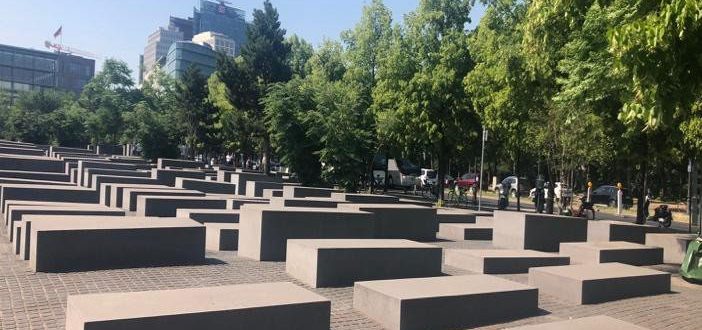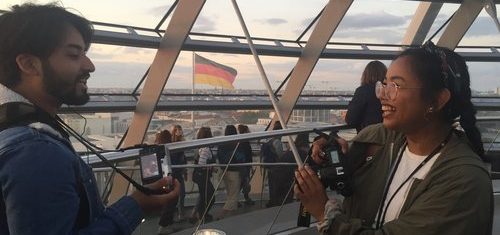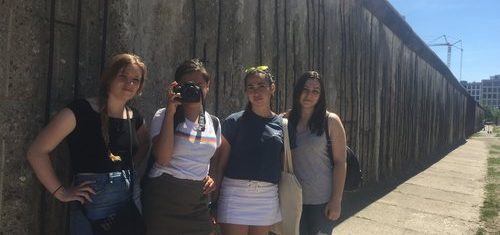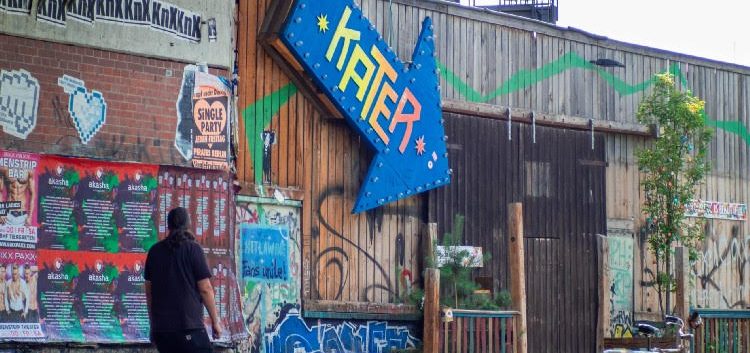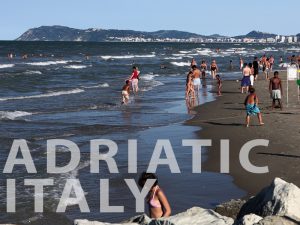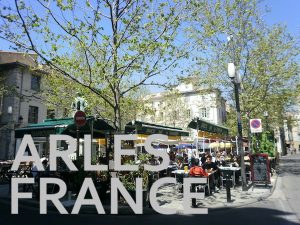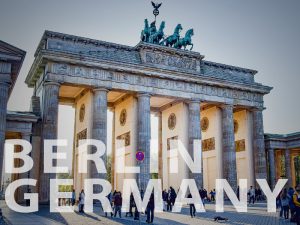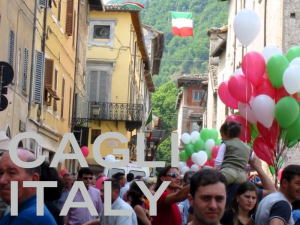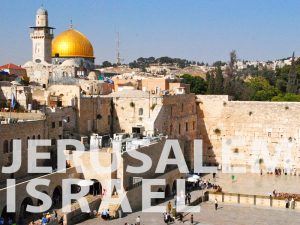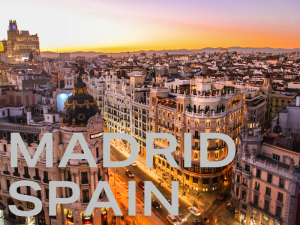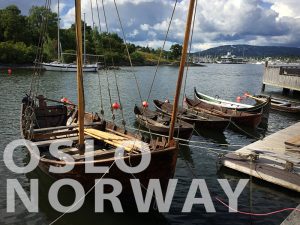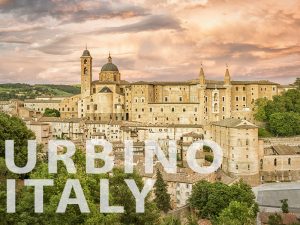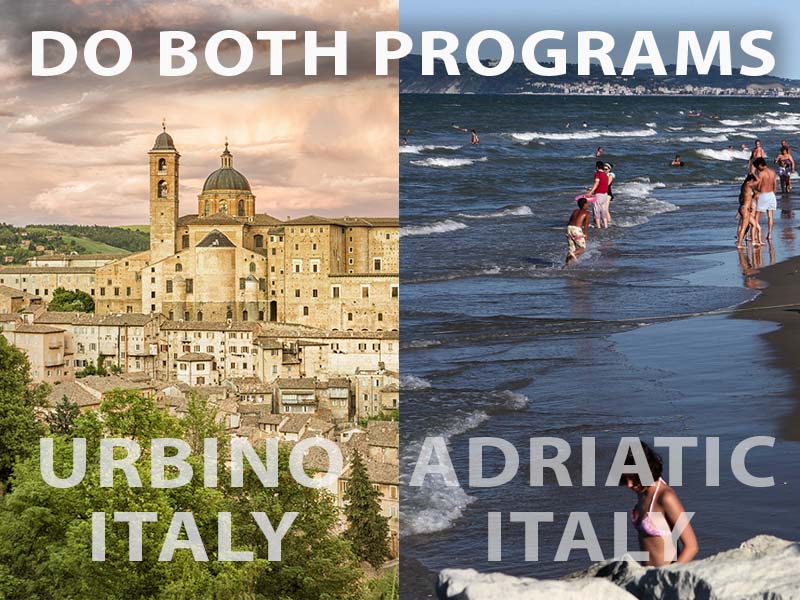Berlin, Germany

Berlin Fact Sheet
Apply now to reserve your place in Berlin, Germany. Program is almost full!
GENERAL LOCATION: Berlin, Germany (Surrounded by the state of Brandenburg).
ENROLLMENT CAPACITY: 15
FOCUS: Multiplatform feature journalism, (writing, photography, video, social media).
PARTNER UNIVERSITY: Transfer credits provided by the University of Jamestown.
PROGRAM COST:
TUITION: $5,245
CREDIT: $450
TOTAL COST: $5,695 + airfare
INCLUDES: Tuition – 3 credits, housing, instruction, health insurance, farewell dinner and special programs, activities and cultural events. DOES NOT INCLUDE AIRFARE.
APPLICATION DEADLINE: Application Deadline is February 9, 2024. If you do not have the necessary access to submit your application by the deadline, start a conversation with us by clicking the Get Started button below. Please refer to the Application Deadline Details below for more information.
PAYMENT DEADLINES:
see Payment, Cancelation and Refund Policy for information on deposit deadlines and amounts.
ENROLLMENT CAPACITY AND WAITLISTS:
ieiMedia projects have a defined capacity limitation for applicants. Since there is a limited number of applicants who can attend, you can only be guaranteed a spot when you (1) have paid your Application Fee and (2) made payments on time according to the Costs and Payment Schedule. Read more about our late payments policy here.
QUESTIONS? Contact Program Director Nomi Morrisl at nomi.morris@ieimedia.com You can also schedule an ieiMedia advising session.
Past information session recordings and slides can be viewed here.
FINANCIAL AID: Students studying abroad for the summer term have limited financial aid options, but Pell grant recipients are encouraged to apply and receive our help in applying for a Gilman Study Abroad Scholarship which can award up to $5,000. Check with your school’s financial aid office and your study abroad offices to find out if other assistance is available. For more information on financial aid, get started by connecting with us here.
The Berlin Project
Guided and mentored by a team of accomplished journalists and professors, students report, write and produce media from the cultural capital of today's Europe, on topics from art and architecture, to the politics and economics of global migration, to sustainable living in the face of climate change.
Berlin is the political and economic center of the continent and home to a pulsing counterculture. It is an international hub for creative young people while its very stones and street corners hold reminders of its darker histories during the Communist, Nazi, and Prussian eras.

A tourist boat on the Spree River passes the Berlin Cathedral on Museum Island, a Unesco heritage site.
"There is nowhere in the world where you have seen such enormous changes in such short times," said author and journalist Peter Schneider, who has written three books on Berlin. "For the good and for the bad, these enormous changes make the character of the city and of the people who live here."
Our 3-week summer course focuses on telling the stories of Berliners, Germany and Europe, across media platforms. That includes reporting, writing, photography, video and social media. The beginning of the program features classes in basic skills, such as how to find a story in a foreign culture, how to interview with the help of an interpreter and how to write, edit and produce features.
After a breakfast meeting each day, students head out into the community to interview, often with faculty accompanying them. Together, as a group, we interview writers, filmmakers, journalists and diplomats. On the 4th of July we team up with Americans living in Berlin at an event hosted by the local German-American friendship organization.
"Berlin, the greatest cultural extravaganza that one could imagine."
— David Bowie, rock musician
Berlin Beyond Borders
Each year our students produce stories that may appear in Berlin Beyond Borders, a publication on medium.com. These prove to be valuable portfolio pieces that boost student credentials as media professionals when looking for jobs and internships. Students also post to the Berlin Beyond Borders Instagram, Facebook and Twitter feeds.
The City
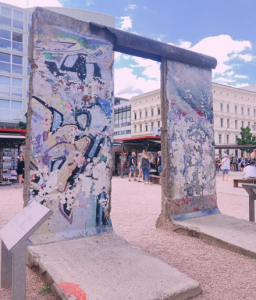
A piece of the Berlin Wall, near the former Checkpoint Charlie crossing point between East and West Berlin.
A city of neighborhoods – nine times the size of Paris in area – Berlin teems with different ethnic groups and affordable eateries, concerts and events. Especially in the summer, locals spill out onto the sidewalks in the cafes of Kreuzberg, Prenzlauer Berg and so many other districts.
Berlin is Germany’s greenest city with 44 percent of its area comprising waterways, woods, rivers and green spaces. A community-conscious but relaxed vibe can be felt in the many large parks within the city, from the Tiergarten next to Germany’s capital buildings to the former Tempelhof airport which has been reclaimed as parkland. Many choose to discover Berlin on bicycles which can be rented on many street corners and can be taken onto the U-Bahn and S-Bahn lines of the city’s world-class transit system.
"You are crazy, my child. You must go to Berlin."
— Franz von Suppé, 19th century Austrian composer
With about 170 museums of all types, there are too many landmarks and cultural sites to name. Find sections of the Berlin Wall, which stood from 1961 to 1989, or visit the former Checkpoint Charlie Cold War border crossing, the Topographie of Terror exhibition on the site of a World War II Gestapo jail, or the East Side Gallery, a mile-long mural painted by more than 100 international artists in 1990 when the Cold War ended.
As a group we will spend a day in Potsdam at Sanssouci, the summer palace of German emperor Friedrich the Great and at Cecilienhof, where the four Allied powers negotiated the treaty that ended World War II. We will also watch the sun set over Berlin from the dome atop the Reichstag, Germany’s parliament building, restored and renovated in 1999, after the country reunited.
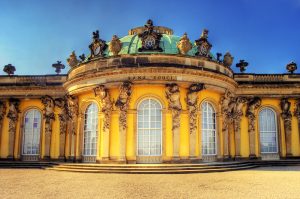
Sanssouci, the summer palace of German emperor Frederick the Great in nearby Potsdam.
Cultural and Recreational Activities
- The Museum Island, a Unesco world heritage site.
- Three world-class opera houses and 150 theaters.
- 300 art galleries, from major public institutions to avant-garde spaces.
- Techno clubs, Cabaret and Varieté venues.
- Drag clubs and a vibrant LGBTQ scene.
- Lakes for swimming, such as Wannsee, Schlachtensee and Krumme Lanke.
- Boat rides along the Spree River and through the city’s canal system.
- Saturday outdoor markets in Winterfeldtplatz and Kollwitzplatz.
Weekends
The first Sunday is reserved for a group trip to Potsdam, but students will have Saturday to explore on their own. The middle weekend will be available for free time or a trip to Prague, a five-hour train-ride away. Dresden is a two-hour train ride. And the Baltic seaport of Rostock is also possible as a day trip or overnight. Distances are great, so more extensive tourism in Germany or other parts of Europe should be planned for before or after our 3-week course.
Credits
Students may earn three credits of an upper-division journalism elective for this course, four credits for schools in the quarter system. The credits will be issued by the University of Jamestown, and we will work with you so they are easily transferable to your university. Transfer credit ultimately depends on a student's home university and department.
Housing
Program participants will stay in a budget hotel that includes a big buffet breakfast.
Equipment
Students should bring their own laptop computers and mobile phones, as well as digital or video cameras and audio recorders if they have them.
German Language and Interpreters
There is no formal German language instruction during this course, but an orientation will cover the basics for getting around. Students are welcome to come earlier or stay longer to add a language course. Students will work with program faculty and guest interpreters for help on any interviews where sources do not speak English.
Students
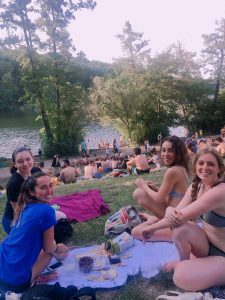
Students from California take a break from the heat at Schlactensee lake while on their reporting trip in Berlin.
The program is open to English-speaking college students and recent graduates from any school. Students from many universities have participated in past ieiMedia programs, including: American University, Arizona State University, Baylor University, California State University Fullerton, California State University Long Beach, Carleton University, Colorado State University, Georgia College and State University, Georgetown University, Humboldt State University, Indiana University, Iowa State University, Ithaca College, James Madison University, Louisiana State University, New York University, Rider University, Rutgers University, Ryerson University, San Diego State University, San Francisco State University, State University of New York at New Paltz, Syracuse University, Temple University, Truman State University, University of California, University of Arizona, University of British Columbia, University of Tennessee at Chattanooga, University of Wisconsin-Madison, University of Wisconsin-Oshkosh, Kennesaw State University, University of Illinois, University of Nebraska-Lincoln, University of Northern Iowa, University of Southern California, University of Wisconsin-Madison, Virginia Tech, and Washington and Lee University. We’ve also had students from Japan, the United Kingdom, Puerto Rico, and Trinidad participate.
"People of Berlin – and people of the world – the scale of our challenge is great… With an eye toward the future, with resolve in our hearts, let us remember this history, and answer our destiny, and remake the world once again."
–Barack Obama, U.S. President, July 2008
Most of our students are journalism or communications majors, but those majoring in other subjects are welcome as well. For non-journalism/communication majors, experience working for a college or professional publication is helpful but not necessary. The program is open to English-speaking students and recent graduates from around the world.
Graduate students are also invited to apply. We’d be happy to talk with you about supervising an independent project that would qualify for graduate credit at your school — or to offer this experience as a graduate internship.
Faculty
(Subject to enrollments/budget)
PROGRAM DIRECTOR
Nomi Morris is a lecturer in the Writing Program at UC Santa Barbara and director of the journalism track in the university’s professional writing minor. She covered the opening of the Berlin Wall for The Toronto Star newspaper and was based in Berlin from 1990 to 1995, the latter half as TIME magazine’s correspondent. Morris went on to become Senior Writer for international at Maclean’s, Canada’s national news magazine and then Middle East Bureau Chief for Knight Ridder Newspapers (now McClatchy). Since moving to California, she has written for Newsweek, the Los Angeles Times, the Los Angeles Review of Books and other magazines and literary journals.
FACULTY
Amara Aguilar is a digital journalism associate professor at the University of Southern California’s Annenberg School for Communication and Journalism. She teaches journalism for mobile/emerging platforms, social media, visual journalism, and interactive design, among other courses. Amara has written for the Los Angeles Times, CNN and other outlets. She has worked as a designer, visual journalist, reporter, social media engagement producer and consultant.
Barbara Demick is an award-winning journalist and author with a specialty in foreign affairs. She was bureau chief for the Los Angeles Times in Beijing and Seoul, and previously reported from Berlin, the Balkans and the Middle East for the Philadelphia Inquirer. She is the author of three books, most recently Eat the Buddha: Life and Death in a Tibetan Town (which was named as one of the best books of 2020 by the New York Times, Economist, Washington Post and Financial Times). She was a press fellow at the Council on Foreign Relations, a Bagehot fellow in business journalism at Columbia University and a visiting professor of journalism at Princeton University.
John Thomas Rose is a photographer and educator based in Southern California. For ten years he’s been the staff adviser to the student newspaper at Santa Barbara City College, The Channels. Working alongside the faculty adviser he oversees journalism, photography and video students working on the online student news site. Rose spent 7 weeks in Vietnam working on a documentary project that resulted in a film, a book and two gallery exhibitions. He then went to New York City to cover the tenth anniversary of the 9/11 attacks. Later he traveled to Black Rock Desert in Nevada to document the struggles of a remote community that had been rendered a ghost town as a result of the housing crisis. During his time at Brooks Institute as a student he gained newsroom experience while photo editing and shooting during a four-month internship at National Public Radio headquarters in Washington, D.C.
INTERPRETER/RESEARCHER
Vanessa Guinan-Bank works as a bilingual freelance journalist based in Berlin. As a news assistant for the Berlin Bureau of the Washington Post, she covers news in Germany and Europe, including the Covid-19 pandemic and the war in Ukraine. She also writes and produces on arts and culture for various German media outlets and radio stations and interviews prominent German novelists in a podcast. She grew up in Germany and has lived in Latin America and a number of Middle Eastern countries.
View complete faculty biographies on our Berlin Faculty Page.
Program Cost
The cost is $5,695 + airfare. That includes 3 credits of tuition (4 for students on a quarter system), accommodations in student apartments, travel insurance, welcome and farewell dinners, city walking tour, and a day trip to Potsdam. Graduates and students who do not need credit can deduct $450 from the program cost.
Application Deadline Details
Our application deadline for Summer 2024 programs is February 9, 2024. Applications submitted after the deadline will be accepted on a rolling basis dependent on program capacity.
Submitting your application by the priority deadline means you will be accepted to a priority spot on the program of your choosing, as well as secure additional time to prepare for payment deadlines and scholarship and financial aid opportunities.
If you do not have the necessary access to submit your application by the deadline, please reach out to admissions@ieimedia.com to speak with an advisor.
Application deadline: Application Deadline is February 9, 2024. ROLLING ADMISSIONS UNTIL PROGRAM IS FULL. Applications received after the deadline can be accepted until program capacity limitations are reached.
TRAVEL ADVISORY: ieiMedia will be monitoring the situation with COVID-19 and will provide status updates to those who sign up for the program.
VACCINATIONS: Students must be vaccinated against COVID-19 to participate in the program.






